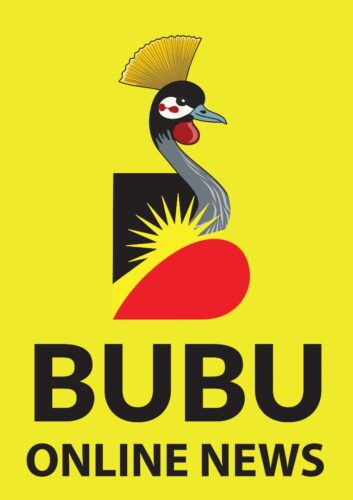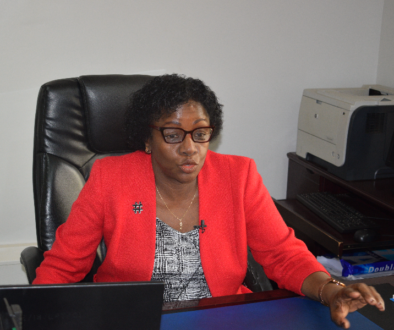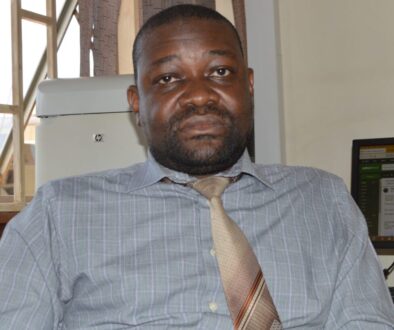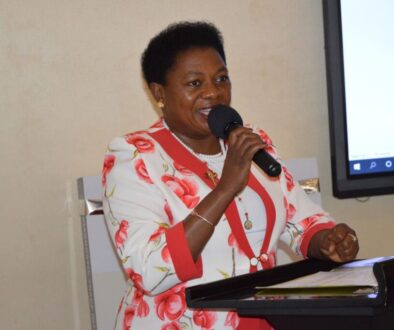NIRA Confident They Have Recruited The Right People For Mass National ID Registration

The National Identification and Registration Authority (NIRA) is in the final stages of recruiting people who will work on the mass enrolment and mass renewal exercise that targets issuing Ugandans with new digital National Identity Cards.
In this exclusive interview, Edwin Tukamuhebwa, the Manager of Registration and Operations at NIRA, provides progress so far made in preparing for the exercise expected to commence in June.
In February, the National Identification and Registration Authority (NIRA) started receiving applications from people who intended to work for the agency during the upcoming mass registration and renewal of National Identity Cards (IDs). What job positions were you looking at filling?
There were several of them. The first category was registration assistants; those are people who will be entering data into the system and will be based in the parishes. The second category were the data processing jobs; those are people who clean the data and ensure that the data is of high or expected quality when it comes into the system. Then we had other jobs, like legal assistants and accounting assistants.
These were the jobs that we advertised. These are temporary jobs; they are not permanent. They are specific to the mass renewal and mass registration exercises. Once the exercise is done, then these people will cease to work with us.
How’s the process going so far?
We closed the applications because the deadline had ended. We made a recruitment portal [website] where people submitted applications. Right now, we are cleaning the applications and categorising them. The system shortlists the applicants according to the requirements. In the next couple of weeks, we will be able to communicate with those whom the system has selected for interviews.
You are intending to hire 11,000 Ugandans, and with the deadline having ended, how many people have applied?
I don’t have a figure on my head. But the last time I checked, they were about 110,000. But the figure must have gone up. I haven’t checked since the date of the deadline.
I am not sure if you have looked at the applications submitted and their quality. Will NIRA manage to get the right people with the right skills, especially in rural areas?
Yeah, we believe we’ll get the right number of people and skillsets because we targeted people with the right qualifications. The skillsets that we needed from people were tailored to what we wanted them to do.
So, we are going to select people who have the skillset and qualifications that match the jobs they are going to do. We are not scared of the quality of the people; we have quite a number of educated Ugandans who can do these jobs.
One of the requirements for one to apply for any of these jobs was possession of a national identity card. Is it fair to lock out some Ugandans who can do these jobs but have no national identity cards?
I don’t think we locked out anybody. We have been registering people for purposes of giving them IDs and National Identification Numbers (NINs) since 2014. To date, those are 10 years.
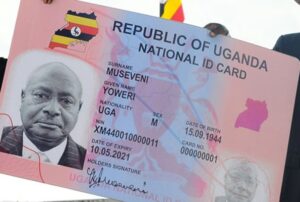
We go to villages, to parishes, and to subcounties, and we have our offices scattered around the country. If someone has missed this opportunity because they do not have an ID, it should be themselves to blame.
The State Minister for Internal Affairs, Gen. David Muhoozi, said the government plans to issue digital National Identity Cards. What exact changes are we talking about here?
We are basically going to enhance the IDs. When technology changes, the needs of people change, and the security of documents must be enhanced because they are getting more sophisticated.
We are enforcing the IDs with quite a number of security features. We are going to have features that will be tagged with laser engraving. We’ll have what we call ghost images and magic-printed features on the IDs.
We will have a QR code for people to be able to scan and read the details of the ID. There are quite a number [of changes] but for now, that’s what I can give you. The ID will be printed on a high endurance material.
According to NIRA plans, mass registration and renewal of National Identity Cards will start in June. Will the people you are recruiting now be ready to execute the task at hand error-free?
We are going to invest a lot of time in skilling and training these people. And because we are sure we have recruited people with the required skillset, we know they will do a good job.
We’ll give them the required training. We will supervise them, and we will critically look at this data. We are very sure they are doing a good job.
We have no reason to doubt the people we are going to recruit. It is to our advantage that we get people who will do the job to our satisfaction and to their satisfaction.
How long will it take to receive the new digital National Identity Cards from the time of registration, and how long will the mass registration and renewal of National Identity Cards take?
The exercise will last for 10 months, starting in June. Ugandans will be able to receive new digital IDs in September of this year. Once we start in June, within the first three months, we’re going to start issuing the IDs to those who registered first.
In the past, we have had National Identity Cards with mistakes. Will there be room for corrections, and at what cost?
There has always been room for the correction of errors. We have several stages where this data is looked at so as to correct the errors before the IDs are printed.
But when the ID is out, there might be an error, like the wrong spelling of a name. I could give you an example of the name Matthew. Someone might spell that name with a single T; another might use a double T. If you put double T, the person here [at NIRA] will not know that the Matthew you mean is the one of single T. But when the ID comes out, you realize the mistake was actually made by you. So, now, when you come back, we do not look at it as a mistake; we look at it as a change that you want to make in your name. So that one comes at your cost.
